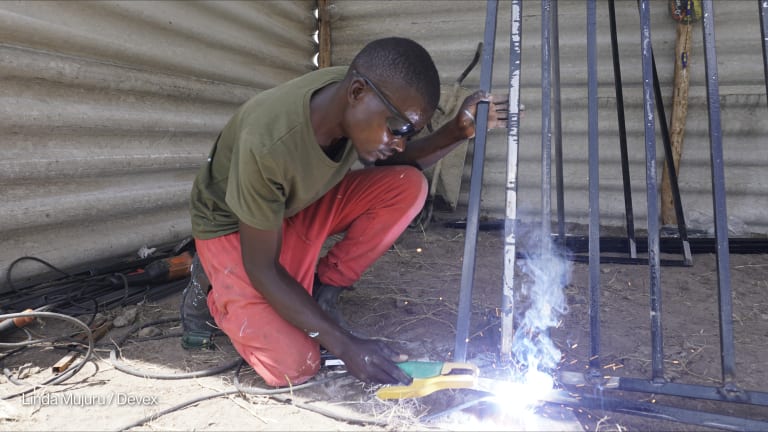
NEW YORK — Progress on girls and young women’s empowerment and inclusion has one big challenge not tracked by the Sustainable Development Goals: media representation.
Women and girls in leadership positions are four times more likely than men to be shown wearing revealing clothing in films, according to new findings by Plan International and Geena Davis Institute on Gender in Media, a nonprofit that researches gender representation in media. Women in leadership positions are also more likely to be sexually objectified than men, according to the organizations, which analyzed the 56 top-grossing movies in 2018 in 20 countries.
“We find that what girls see in movies, which pull in a lot of viewers and a lot of money, shape women’s leadership in a way that turns off women from pursuing leadership.”
— Anne-Birgitte Albrectsen, CEO, Plan InternationalThe focus on media might seem outside the realm of typical development work, but the findings reveal an important obstacle that could discourage the 76% of girls and young women who aspire to be leaders in their work, according to Plan International.
Devex spoke with Plan International CEO Anne-Birgitte Albrectsen about what can be done to counter this trend.
This conversation has been lightly edited for length and clarity.
You have a new partnership with the Geena Davis Institute on Gender in Media. How does this intersect with your own work at Plan International?
Girls and young women's leadership is a key part of our global strategy, and efforts of challenging stereotypes is an equally important part.
Opinion: Rewriting the headlines for gender equality
It's time to shed more light on progress being made toward gender equality — and use those successes to inform the G-7. Dr. Joannie Marlene Bewa, founder of the Young Beninese Leaders Association, explains.
Many of us in the development sector have been working tirelessly for years to make sure our efforts are gender-aware and transformative. Our goal is to make sure that everything we do creates lasting systemic change that leads to gender equality. Increasingly, we are finding our efforts have less impact than we would have hoped because we are constantly battling the windmill of the negative stereotypes of the social norms of how women are perceived in society and the roles they are supposed to play or not play.
Media advertisements have an incredible role in shaping their image. Unfortunately, we find that what girls see in movies, which pull in a lot of viewers and a lot of money, shape women’s leadership in a way that turns off women from pursuing leadership.
How much influence can development work on girls' leadership actually have when you are working against all these other factors?
If we look at girls’ education generally across the world, we all know the numbers have been improving in primary and secondary education. But we are not seeing the same impact in women’s participation in the labor force. What we are up against there collectively is the overarching social norm that when a woman gets married or has a child she stops working, or that there are certain jobs that are just not for women.
We really have to find ways of busting those social norms. We are hearing from the girls themselves that they want to lead in their communities, they want to take charge of change projects, and they would like executive roles in the labor market. But they are afraid based on what they have seen in real life and movies — that they will be objectified and subject to harassment.
Unfortunately, what we have also seen is those taking small baby steps into the political arena or leadership often specifically drop out because they are subject to harassment when they do step up.
What do you think should be done among development leaders to help reverse these trends?
Working together as a sector and with media companies can help retell the story of what a young woman can be. I am personally a huge believer in the fact that what you see day-on-day is what you believe, whether it is fiction or reality.
All of those that are investing a lot in education have to demand that textbooks depict girls and women in a different way. I have often used the example of primary school textbooks in India that do not have a single picture of a woman in an executive position. They always show women as parents, carers, teachers, and if that is what you grow up with, that is what you think you should be.
We could probably change social norms a lot faster than we think if we made a concerted effort in the educational system and in the film industry that has such tremendous impacts on how an individual sees herself.






